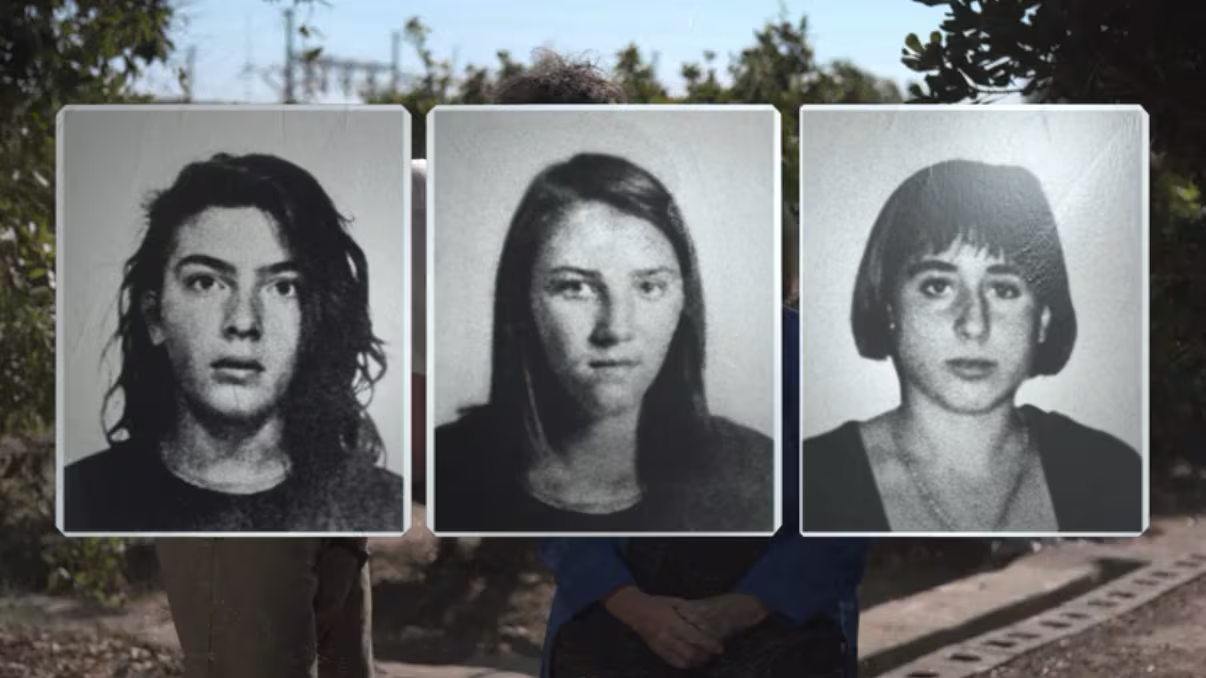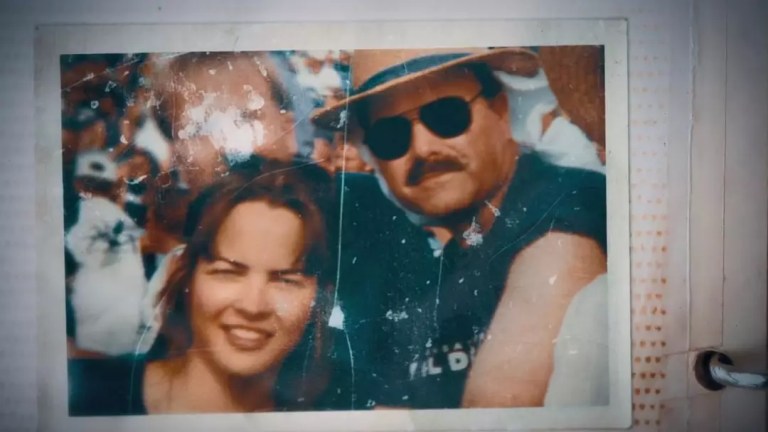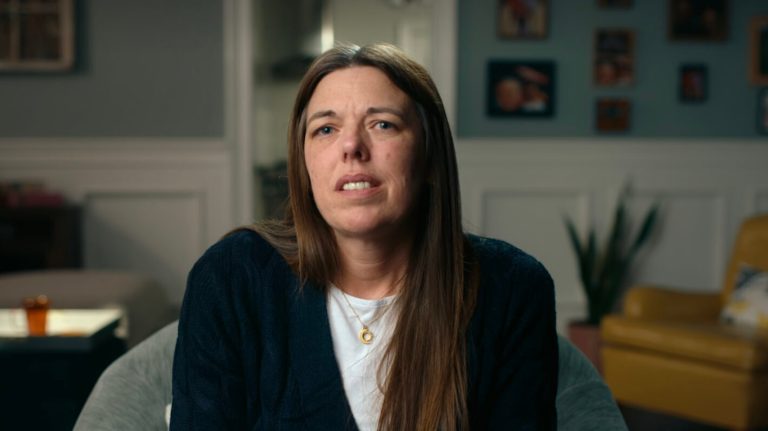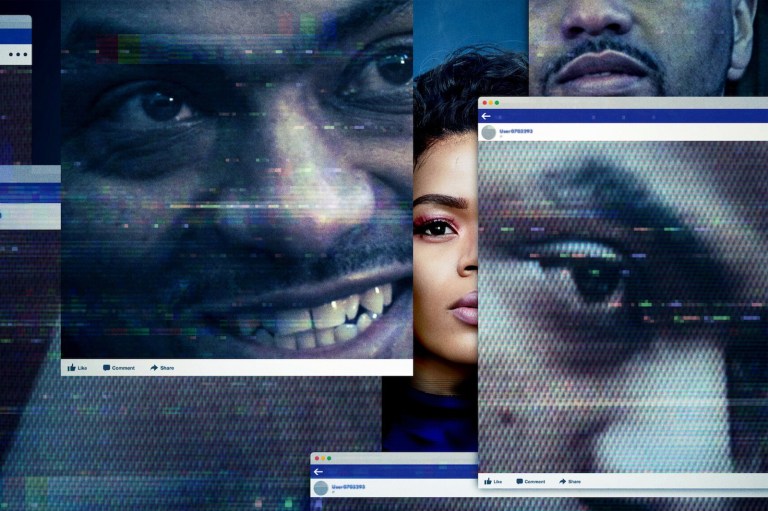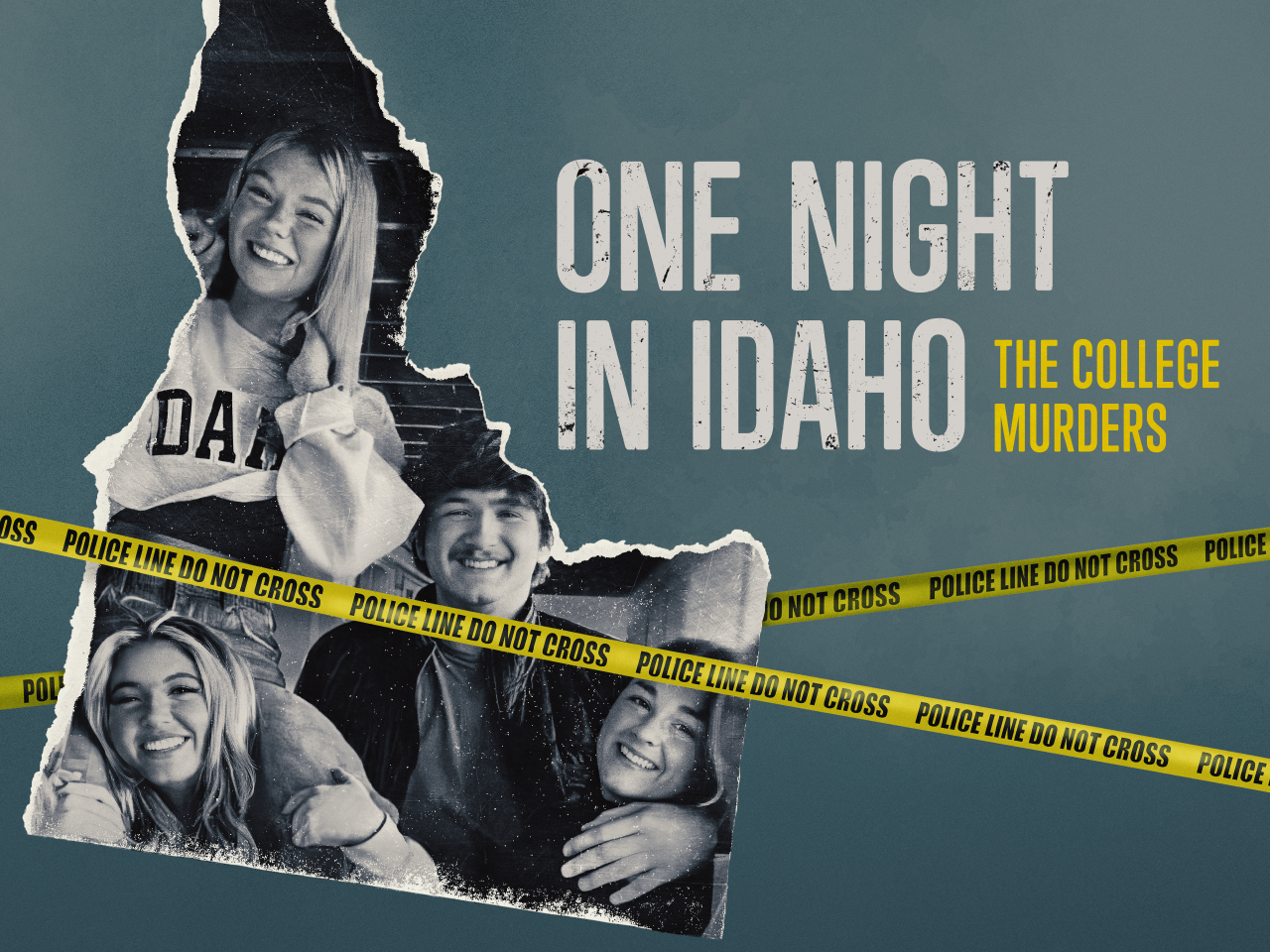
‘One Night in Idaho’ Is The True Crime Documentary That Does It Right
By Erin Whitten
A random criminal act shattered the peaceful routine of Moscow, Idaho on November 13, 2022. Around 4 a.m., four students – Kaylee Goncalves, Madison Mogen, Xana Kernodle and Ethan Chapin – were found dead in their off-campus King Road home.
All four victims attended the University of Idaho. The motive was unknown and a suspect had not been named in the weeks after the murders. The case went viral within hours as the public speculated and dug on social media, causing a media frenzy within hours. We all know, documentary series about true crime can be so cynical. Too many offer a garish slant on gruesome details while mythologizing a killer as an antihero. One Night in Idaho: The College Murders, which premiered on Prime Video, took a brand new approach to the tragic tale we see too often in true crime docu-series.
Directors Liz Garbus and Matthew Galkin’s four-part doc doesn’t linger on the crime or cast the killer as the protagonist. It’s a moving and human-centric chronicle that circles back to the victims, to the lives that were cut short and to the family members and friends who have yet to find any kind of closure. The series barely mentions the name Bryan Kohberger in the first two episodes. The filmmakers instead introduce the audience to the four victims as whole, living people, college students full of promise, friendships, ambition, and joy. Interviews, home videos, TikTok clips, and social media posts all work to reconstruct the lives of the young victims and their relationships with uncommon care. Viewers come to know Maddie and Kaylee as not just roommates, but lifelong best friends who seem to balance each other so perfectly. Xana emerges as a louder than life, music-loving ball of energy, and Ethan as a doting brother and a grounding presence, who, in his siblings’ words, still seems to be alive.
The Investigation Unfolds
The series focus shifts in its second half as the group dives into how police investigators came to suspect and then arrest Kohberger. Security cameras recorded a white Hyundai Elantra parked outside the house on murder night which belonged to Kohberger. A knife sheath recovered at the crime scene had DNA that first led investigators to Kohberger’s family members and then to Bryan himself. Cell phone data also showed his phone had been deactivated during the time of the murders before turning back on shortly after to indicate he was in the area. The FBI tracked him as he returned to Pennsylvania and arrested him nearly an entire month later. The series deliberately avoids dramatizing the fundamental digital and forensic evidence throughout its episodes, and Garbus and Galkin stay focused on the emotional stakes at play behind the evidence.
Motives and Unanswered Questions
The series makes no promises to the “why” front, of course, a question that will likely remain open even after Kohberger’s guilty plea. Nevertheless the show reveals key theories about Kohberger’s possible thinking patterns and driving forces. For one, his grad school study of criminal psychology helps explain a certain fascination. The behavior of some of Kohberger’s former college classmates is also telling, with some describing an abnormal interest in the psychology of serial killers, as well as a feeling of alienation that seemed to put him at odds with his fellow students on campus. The show theorizes that Kohberger’s feelings of disconnection only grew from there to include the so-called “incel” community, toxic online groups often defined by male resentment and social exclusion.
Another theory it touches on is, “Papa Rodger,” a Facebook true crime group member who had posted an accurate timeline of events before arrests and became a suspect to online sleuths after they saw similarities between his profile picture and Kohberger’s post-arrest. The username of this Facebook group member also has some speculation online to note the username may be referring to Elliot Rodger who became a figure of glamorization within the incel subculture.
Rebuilding a Narrative Hijacked by Sensationalism
The success of the documentary is due to how it ensures its victims are remembered for more than their final moments. The series spends just as much time exploring the lives they led and the dreams they were in the process of living. We see Xana and Ethan singing along to Luke Combs in a car. We see Maddie smiling through a Facetime. We see Kaylee dancing with friends. They don’t use stock footage clips; each moment in these lived-in scenes captured in sunlight and smiles, frozen in time with care and shared with respect. The documentary focuses on their mourning and courage as they work to keep their children and friends alive through memory.
In one of the most soul-crushing moments of this 4-part-series is when the documentary shows Ethan’s parents Stacy and Jim Chapin discussing their decision to keep moving forward. Stacy, for example, talks about how one day, she decided to “wake up and put my best foot forward for Ethan.” Karen Laramie, Maddie’s mother, wonders aloud what her daughter would want, when the family debated whether to remain frozen in sorrow or to progress while preserving the cherished memories. One Night in Idaho stands out as an essential corrective within a genre that frequently edges toward exploitation. It does not glamourize Bryan Kohberger. The documentary avoids graphic reenactments alongside avoiding tabloid-style storytelling. The series forces you to be uncomfortable. It forces you to grieve, to experience grief in a way that you might never have, or to remember grief that you have experienced, your own, or that of the families that have lost so much. It’s not a quick moving docudrama that many are used to when it comes to the kind of thriller it portrays. It’s slow and it’s designed to be and that’s what makes it work. You need the time to take it all in.
A New Standard for the True Crime Genre
Ok, so, full disclosure here. I’m a serial true crime junkie. I’ve lost count of the number of documentaries I’ve watched, but this one is in a different category to all of those I’ve seen before. One Night in Idaho is not a series you can put on in the background or casually binge-watch with a bag of popcorn and muted screams. It is not entertainment. It is not about your own theories of the details of the crime itself. It’s a series you watch and sit with and take time to think about after the screen fades to black. It’s about what justice really looks like. What healing really requires. Most importantly what stories need to be told. Most of all, One Night in Idaho is about never forgetting the names and faces of the people who should still be with us.
